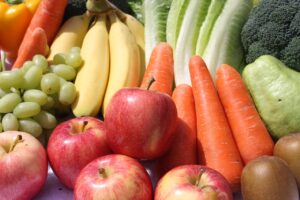What to Eat if You Have Gallbladder Problems
What to Eat if You Have Gallbladder Problems: A Detailed Dietary Guide

n’s quality of life. The gallbladder, a small organ beneath the liver, stores bile, a digestive fluid produced by the liver. Bile helps digest fats, so dietary choices are crucial for individuals with gallbladder problems. This comprehensive guide will delve into what you should eat if you have gallbladder issues, offering detailed explanations and practical advice.
Understanding Gallbladder Problems
Gallbladder problems can range from gallstones (cholelithiasis) to inflammation (cholecystitis) and bile duct obstruction. These conditions can cause severe pain, digestive issues, and complications if not managed properly. The right diet can help alleviate symptoms and prevent further complications.
Symptoms of Gallbladder Problems
- Pain: Typically in the upper right abdomen, especially after eating fatty meals.
- Nausea and Vomiting: Common during gallbladder attacks.
- Digestive Issues: Bloating, gas, and indigestion.
- Jaundice: Yellowing of the skin and eyes, indicating a bile duct obstruction.
Dietary Guidelines for Gallbladder Health
1. Low-Fat Diet
A low-fat diet is crucial for managing gallbladder problems. High-fat foods stimulate the gallbladder to release bile, which can trigger pain and other symptoms.
Foods to Include
- Lean Proteins: Chicken, turkey, fish, and plant-based proteins like beans and lentils.
- Low-Fat Dairy: Skim milk, low-fat yogurt, and reduced-fat cheese.
- Fruits and Vegetables: These should be the cornerstone of your diet, providing essential vitamins, minerals, and fiber.
Foods to Avoid
- Fried Foods: French fries, fried chicken, and other deep-fried items.
- High-Fat Dairy: Whole milk, cream, full-fat cheese, and butter.
- Processed and Red Meats: Bacon, sausage, and fatty cuts of beef and pork.
2. High-Fiber Foods
Fiber helps improve digestion and can prevent the formation of gallstones by reducing cholesterol in the bile. Aim for a balanced intake of soluble and insoluble fibers.
Foods to Include
- Whole Grains: Brown rice, oatmeal, whole wheat bread, and quinoa.
- Fruits: Apples, berries, pears, and citrus fruits.
- Vegetables: Broccoli, carrots, Brussels sprouts, and leafy greens.
- Legumes: Beans, lentils, and chickpeas.
3. Hydration
Staying well-hydrated helps keep bile thin, reducing the risk of gallstone formation. Aim to drink at least 8 glasses of water a day.
4. Small, Frequent Meals
Eating smaller, more frequent meals can help prevent the gallbladder from becoming overworked. Large meals can cause the gallbladder to contract forcefully, leading to pain.
5. Moderate Protein Intake
While protein is essential, balance is key. Excessive protein, especially from fatty meats, can exacerbate gallbladder problems.
Foods to Include
- Lean Meats: Skinless poultry, fish, and lean cuts of pork.
- Plant-Based Proteins: Tofu, tempeh, and legumes.
- Low-Fat Dairy: Cottage cheese, Greek yogurt, and low-fat milk.
6. Anti-Inflammatory Foods
Incorporating anti-inflammatory foods can help reduce inflammation in the gallbladder and surrounding tissues.
Foods to Include
- Omega-3 Fatty Acids: Found in fatty fish like salmon, mackerel, and sardines, as well as flaxseeds and walnuts.
- Fruits and Vegetables: Particularly those rich in antioxidants, like berries, spinach, and bell peppers.
- Herbs and Spices: Turmeric, ginger, and garlic.
Sample Meal Plan for Gallbladder Health
Breakfast
- Option 1: Oatmeal topped with fresh berries and a drizzle of honey.
- Option 2: A smoothie made with spinach, banana, almond milk, and a tablespoon of chia seeds.
Mid-Morning Snack
- Option 1: An apple with a small handful of almonds.
- Option 2: Carrot sticks with hummus.
Lunch
- Option 1: Grilled chicken salad with mixed greens, cherry tomatoes, cucumbers, and a vinaigrette dressing.
- Option 2: Quinoa bowl with black beans, avocado, corn, and a lime-cilantro dressing.
Afternoon Snack
- Option 1: Low-fat Greek yogurt with a sprinkle of flaxseeds.
- Option 2: A small pear with a slice of low-fat cheese.
Dinner
- Option 1: Baked salmon with steamed broccoli and a side of brown rice.
- Option 2: Stir-fried tofu with mixed vegetables (bell peppers, snap peas, carrots) over quinoa.
Evening Snack
- Option 1: A small bowl of mixed berries.
- Option 2: A few whole-grain crackers with a slice of low-fat turkey breast.
Foods and Beverages to Limit or Avoid
1. Refined Sugars and Carbohydrates
These can contribute to weight gain and increased cholesterol levels, which can exacerbate gallbladder problems.
Foods to Avoid
- Sugary Beverages: Sodas, sweetened teas, and energy drinks.
- Pastries and Sweets: Cakes, cookies, and candies.
- White Bread and Pasta: Opt for whole grain versions instead.
2. Caffeine and Alcohol
Both can irritate the digestive system and should be consumed in moderation or avoided.
- Caffeine: Found in coffee, tea, and some soft drinks.
- Alcohol: Beer, wine, and spirits.
3. Spicy Foods
Spicy foods can trigger gallbladder attacks in some people. Monitor your tolerance and avoid overly spicy dishes if they cause discomfort.

Lifestyle Changes for Gallbladder Health
In addition to dietary changes, certain lifestyle modifications can support gallbladder health.
Regular Exercise
Physical activity can help maintain a healthy weight and reduce the risk of gallstones. Aim for at least 30 minutes of moderate exercise most days of the week.
Maintain a Healthy Weight
Being overweight is a significant risk factor for gallbladder problems. If necessary, aim for gradual, sustainable weight loss through a combination of diet and exercise.
Avoid Rapid Weight Loss
Rapid weight loss can increase the risk of gallstones. Aim for a gradual weight loss of 1-2 pounds per week.
Managing gallbladder problems through diet is a powerful approach that can alleviate symptoms and prevent complications. By focusing on low-fat, high-fiber foods, staying hydrated, and incorporating anti-inflammatory ingredients, you can support your gallbladder health. Small, frequent meals and balanced protein intake further aid in digestion and reduce the risk of gallbladder attacks. Coupled with regular exercise and healthy weight management, these dietary changes can significantly improve your quality of life. Always consult with a healthcare provider before making significant dietary changes, especially if you have existing health conditions or concerns.



